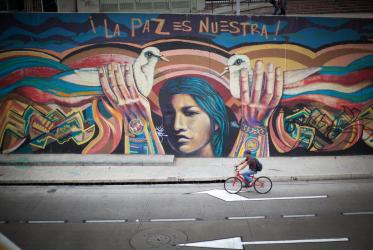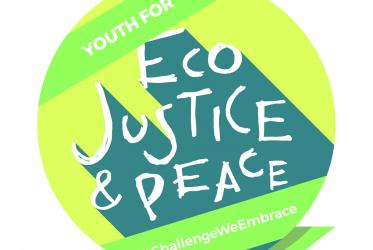Displaying 21 - 40 of 40
19 July 2018
Voices from Colombia: “What if we have no land to till?”
15 February 2018
WCC pilgrims visit the wounds of Colombia
13 February 2018
Seven weeks of Lent highlight water justice in Latin America
12 February 2018
WCC calls for peace in Colombia
09 February 2018
WCC delegation visits Conference of Latin American Bishops
08 February 2018
WCC welcomes new temporary ceasefire in Colombia
06 September 2017
WCC welcomes monitoring of ceasefire in Colombia
01 February 2016
WCC welcomes historic step towards peace in Colombia
24 September 2015
WCC calls for protection of church leaders in Colombia
30 January 2015






